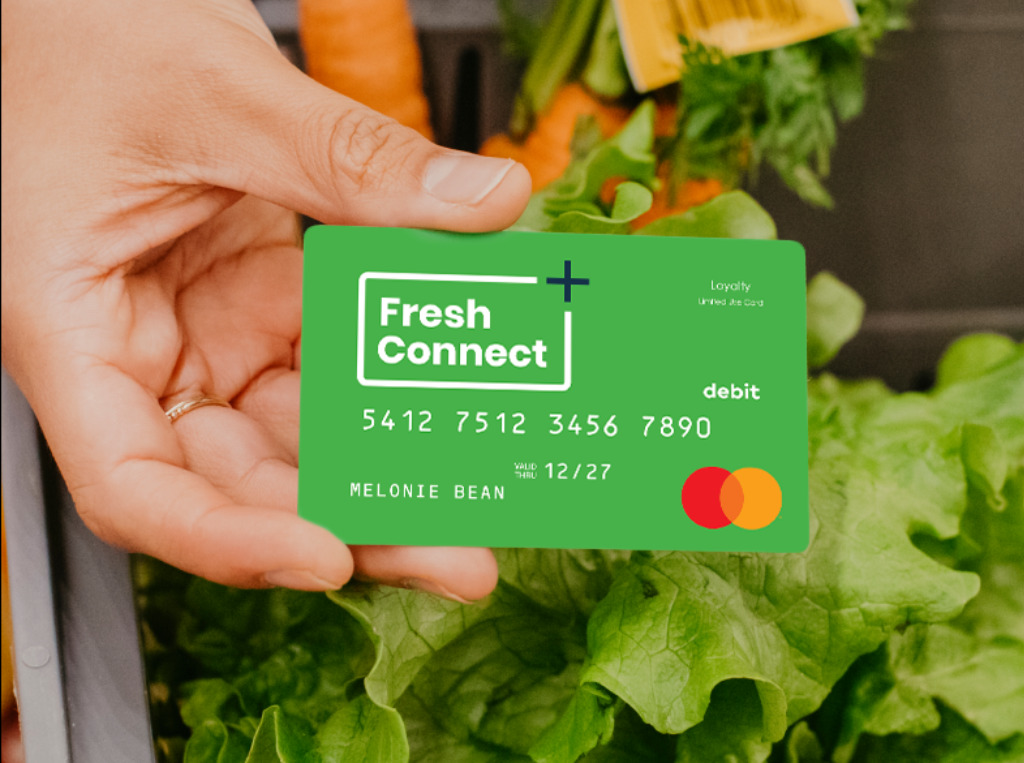Food is Medicine Series: 7 Produce Prescription Startups Helping Boost Americans’ Food Security
9 Mins Read
As studies highlight the positive social impact of Food is Medicine programs on American lives and healthcare, here are seven produce prescription startups helping feed more nutritious and affordable meals to Americans.
This article is the fourth installment of our Food is Medicine (FIM) content mini-series.
Almost a quarter of Americans were food insecure as of December 2022 – a figure that increased from the year before. Meanwhile, according to the USDA, nearly 19 million residents – or 6.1% of the total US population – live in low-income, low-access areas and have trouble getting to a grocery store.
The same body also says food insecurity is associated with numerous health conditions, including hypertension, hepatitis, stroke, cancer, asthma, diabetes, arthritis, kidney issues and heart disease – the leading cause of death in the US.
Affordable and inclusive access to nutritious and fulfilling foods is paramount to Americans’ health and finances. Food is Medicine programs – which include produce prescriptions and medically tailored meals – are being suggested as a solution. One study has found that these initiatives can help reduce diseases, improve quality of life, and cut billions in healthcare costs in the US.
As this industry grows, it’s becoming host to a number of companies providing Food is Medicine services. Here are seven produce prescription startups helping improve food security in the US.
FarmboxRx
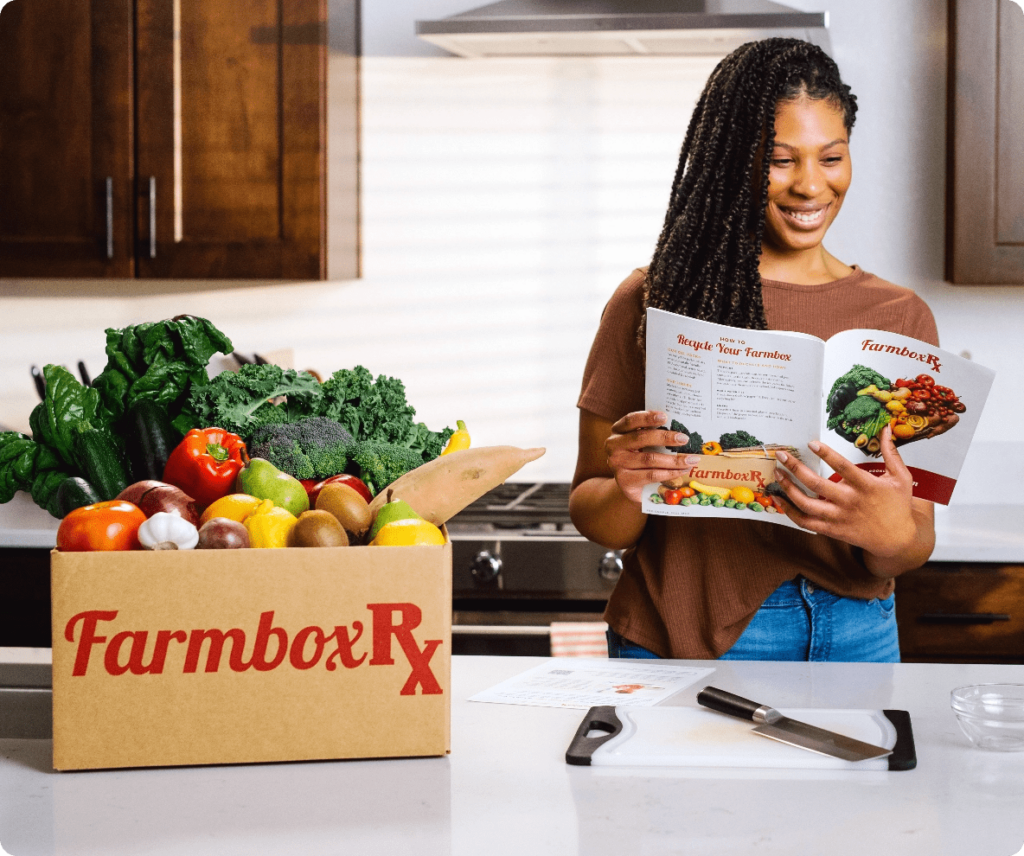
Founded in 2014 by Ashley Tyrner, who herself used to live on food stamps in a rural food desert, Boston-based FarmboxRx began as a direct-to-consumer (D2C) service called Farmbox Direct that shipped food boxes across the US. It grew to $1M in revenue, before pivoting to a healthcare focus in 2019 and rebranding to its current name.
The company partnered with Medicare Advantage, Medicaid and private health insurance plans to offer a nutrition program that makes it easier for members of wellness-focused medical plans to eat more healthily. Healthcare providers pay FarmboxRx for the food that’s shipped to customers, which includes fruits and vegetables, lean proteins, essential pantry goods, and even ready-to-eat meals.
The startup’s healthcare move saw it make nearly $35M in revenue last year and rank 100 on the 2023 Inc. 5000 list. To double down on this focus, it closed its D2C business last year – what started with a single health plan offering has now grown to 87 different plans.
“While looming potential shutdowns wouldn’t have [an] immediate impact [on] Medicare/Medicaid coverage, or FarmboxRx, as mandatory spend programs, the stagnant negotiations on discretionary appropriations could very well impact the 40+ million Americans that rely on federally funded food assistance programs such as SNAP and WIC,” Tyrner told Forbes earlier this month.
Everyone’s Harvest
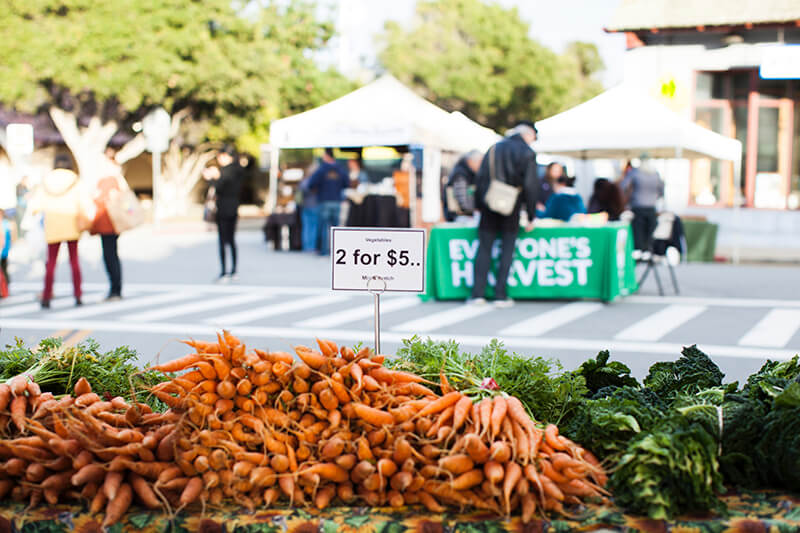
Founded in 2002, Everyone’s Harvest is a Californian operator of farmers’ markets, which launched its produce prescription program Fresh Rx in 2014. Doctors prescribe patients vouchers of up to $35 per week to spend on fresh fruits and vegetables at any of Everyone’s Harvest’s five markets.
So far, the initiative has provided over 1,000 families with more than $630,000 worth of produce – in 2022 alone, it catered to 268 families with fruits and vegetables worth $135,000. It recently received two grants worth $700,000 in total. The first – a $200,000 grant over two years – is from the Central California Alliance for Health, which focuses on expanding the program’s reach to Medi-Cal recipients and educating people with nutritional knowledge and recipes.
The $500,000 federal grant was awarded by the USDA’s National Institute of Food and Agriculture, as part of its Gus Schumacher Nutrition Incentive Program (GusNIP). Spread over three years, Everyone’s Harvest hopes to use the grant to improve dietary health through increased fruit and vegetable consumption – research has found that prescriptions can lead to a 30% higher intake of produce in Americans. It also aims to reduce food insecurity, healthcare use, and associated costs.
The two grants are budgeted for a total of 244 patients, according to the company’s executive director, Hester Parker. She told Monterey County Weekly: “My dream is that, eventually, these types of preventative produce prescriptions will become an allowable insurance expense. As we’re able to show that it’s cost-effective as far as the utilisation of health care, maybe it becomes an allowable expense paid for through insurance.”
Hungry Harvest
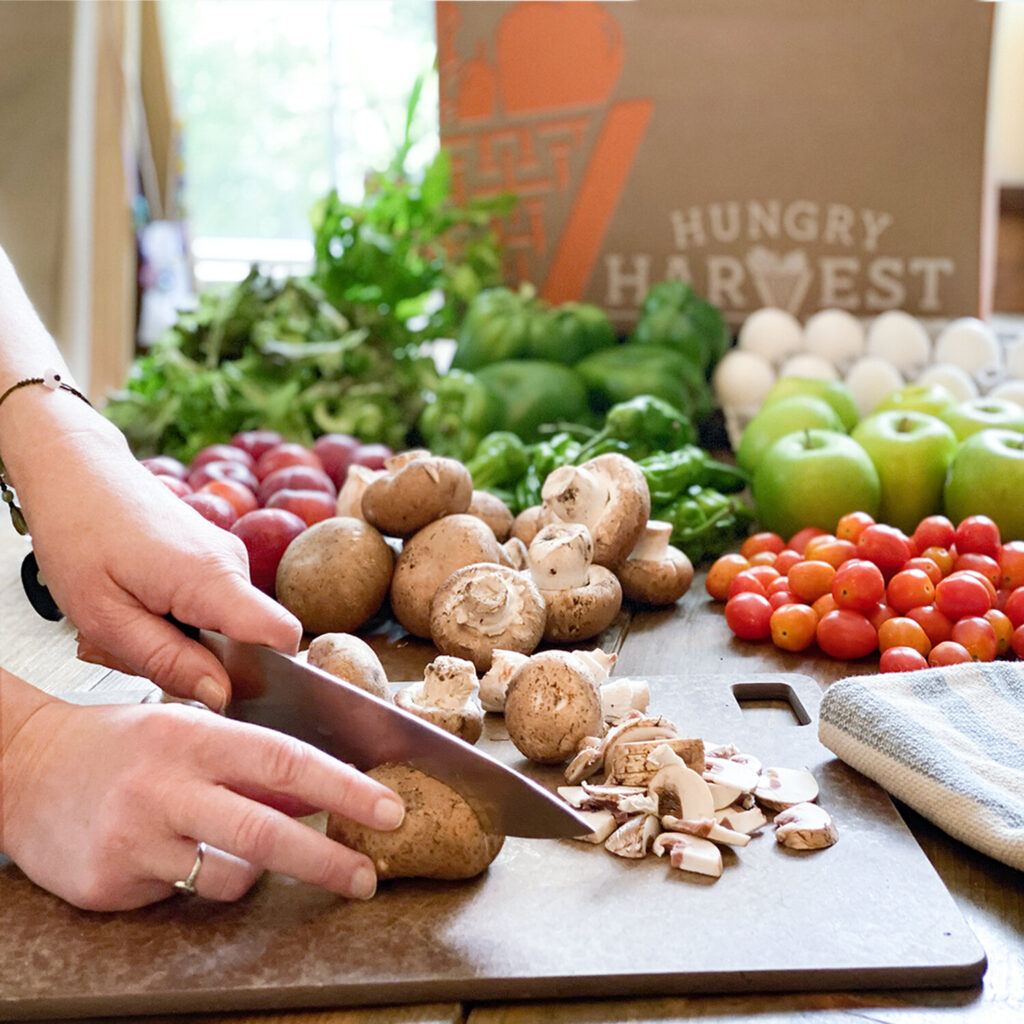
If you’re thinking Hungry Harvest sounds familiar, that might be because you’re a Shark Tank fan. Its founder Evan Lutz bagged a $100,000 investment from Robert Herjavec in the 2016 edition of the show, before returning in 2020 to share a progress update. That year, it raised $14M in a Series A round.
The company began as a redistributor of ‘unwanted’ produce otherwise destined for waste. It started off as a D2C service, before expanding to wholesale for the foodservice industry, then launching a line of branded products, and eventually introducing a Food is Medicine program called HarvestRX.
According to its website, Hungry Harvest has collaborated with over 100 community organisations, including school systems and colleges, hospitals, insurance providers, and food banks. Since 2014, it has saved over 22 million lbs of food from going to waste and donated or subsidised over 1.5 million lbs of produce to partner organisations and via its own food access programs.
In August, it opened a new funding round with a $5M goal, raising $1.15M as part of the round earlier this month. Business-to-business sales have become the dominant revenue driver as the HarvestRX plan has expanded.
“Hungry Harvest has been with me, and I’ve been with Hungry Harvest, every step of the way over the past 10 years, both personally and professionally,” Lutz told Technical.ly. “[Moving] from packing boxes in a parking lot to working with some of the largest healthcare providers in the entire country, it’s just a surreal feeling.”
About Fresh
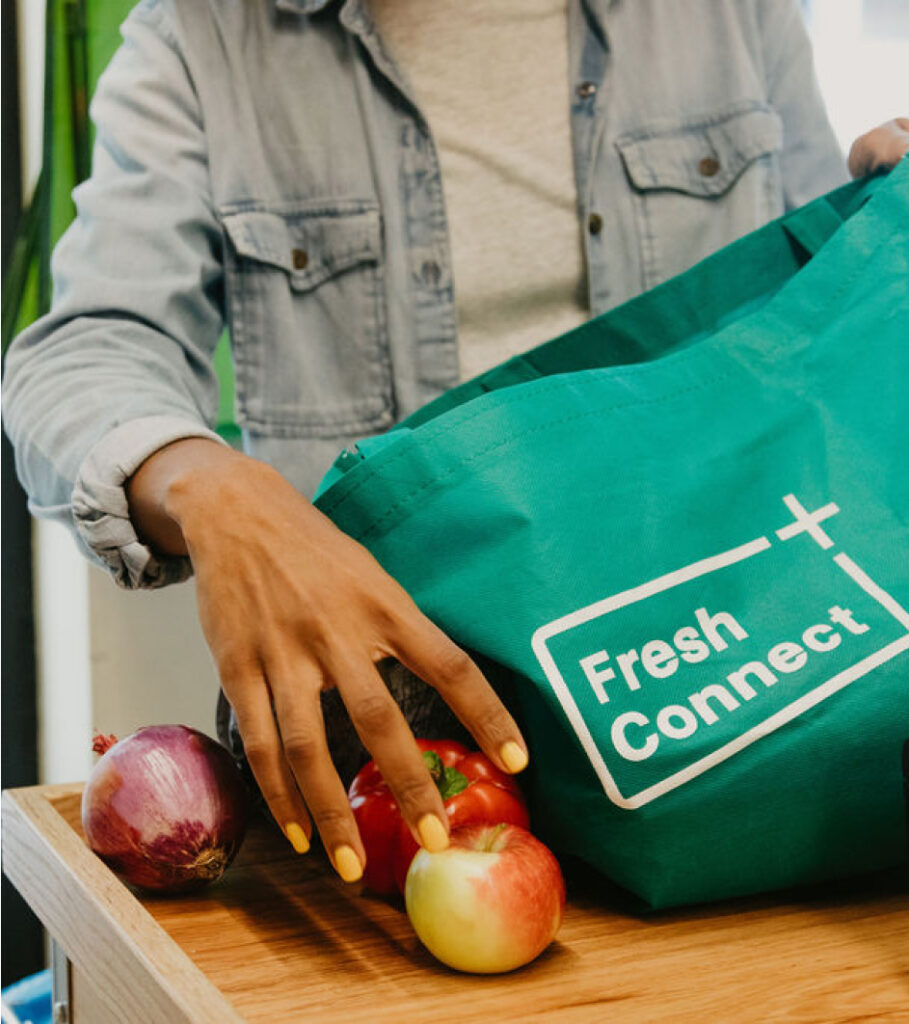
Launched in 2013, Boston-based About Fresh offers tech-enabled food prescription, using a debit card service called Fresh Connect. Food-insecure patients get prepaid Fresh Connect Mastercards – funded by healthcare organisations and monthly limits set via an enrolment form – which they can use to shop for fresh fruits and vegetables at local grocery stores, farmers’ markets and mobile markets.
The prepaid debit card automatically recognises the eligible healthy foods from the basket, the costs of which are deducted from the final bill. The initiative can track shopping activity and expenses, generating monthly summaries of how patients use these cards. Meanwhile, healthcare teams tie cardholders’ shopping and engagement data back to electronic health records, which helps assess health outcomes, medical costs, patient experience and healthy food access.
About Fresh struck a deal with fintech provider FIS earlier this year, which expanded its access to 10,000 grocery stores, including retail giants Walmart, Kroger, Albertsons and Safeway. The company operates Fresh Truck, described as a farmers’ market in a bus.
“We are building a first-of-its-kind infrastructure, making it possible for health plans, providers, community-based organisations and others to leverage the scale and efficiency of grocery retail and e-commerce to maximise the value of their investment into ‘food as medicine,’” said About Fresh co-founder and CEO Josh Trautwein.
Season Health
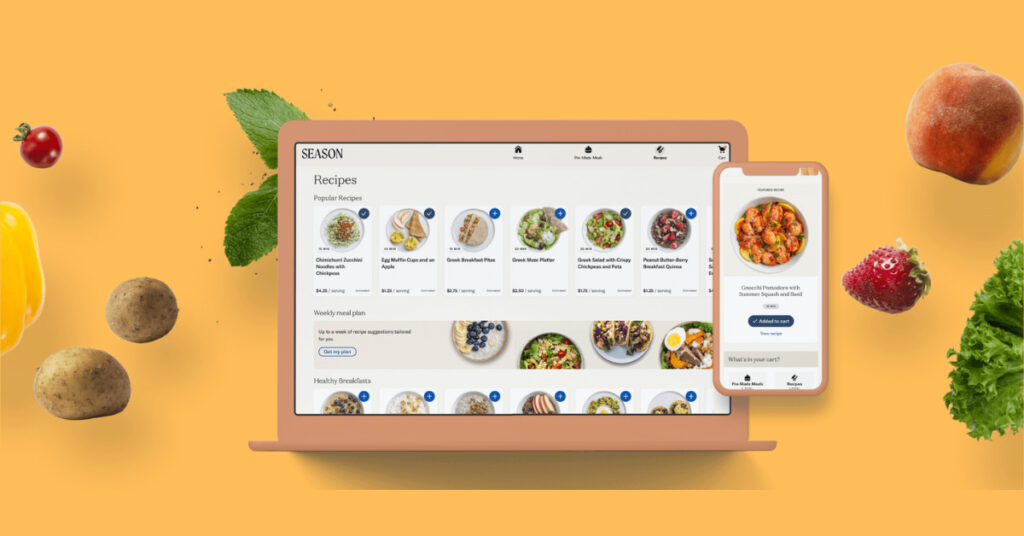
Based in Austin, Texas, Season Health was founded by Josh Hix, former founder of meal kit service Plated. It’s marketed as a digital food pharmacy that combines meal prescriptions with delivery logistics.
It emerged from stealth mode in February 2022 and received a $34M Series A injection two months later. It works with dietitians to develop meal plans and recipes that aim to help patients manage and possibly reverse chronic conditions like diabetes and kidney disease, with plans to expand to other areas like maternity health, heart health and cancer.
It has established anchor partnerships with the likes of health organisations like Geisinger, CommonSpirit Health and Cricket Health, and is working with – among others – Walmart, Daily Harvest and Instacart (which itself announced a Food is Medicine impact study earlier this month).
“Designing food that tastes good, that is culturally relevant because people eat differently and that helps serve the needs of their entire household or whoever they’re eating with, is a lot of what made Plated successful in health outcomes,” Hix told Fast Company. “Can we get people to stick to those interventions? We think yes, but that’s on us to go prove.”
VitaBowl

Launched in 2020, VitaBowl is a Food is Medicine-focused meal delivery service co-founded by nutritionist Sarah Brandow, Michelin-starred chef Dominique Crenn, Charles Michael Yim and Miko Lorenzo.
The startup offers plant-forward meals that cater to various dietary needs, including low-carb, pescetarian and other options. It recently launched veggie burgers and juices too. VitaBowl has served a host of B2B customers across government, K-12 schools, hospitals and corporations, generating annual sales of $1M.
“Our goal is to essentially collaborate with the health insurance companies, so that these meals and programs are medically tailored and reimbursable, which is, quite frankly, very different than some other meal prep services,” Yim told Forbes.
To that end, VitaBowl raised $3M in a seed funding round in May, taking its total valuation to $10M. It’s on track to be profitable by the end of the year and will focus on B2B clients as that delivers high margins and requires little marketing spending.
“I believe you should feed yourself with high vibrational food that’s nutrient dense and personalised for your body,” said Crenn. “Food is medicine. Food connects you with what matters. VitaBowl embraces that ethos.”
Free From Market
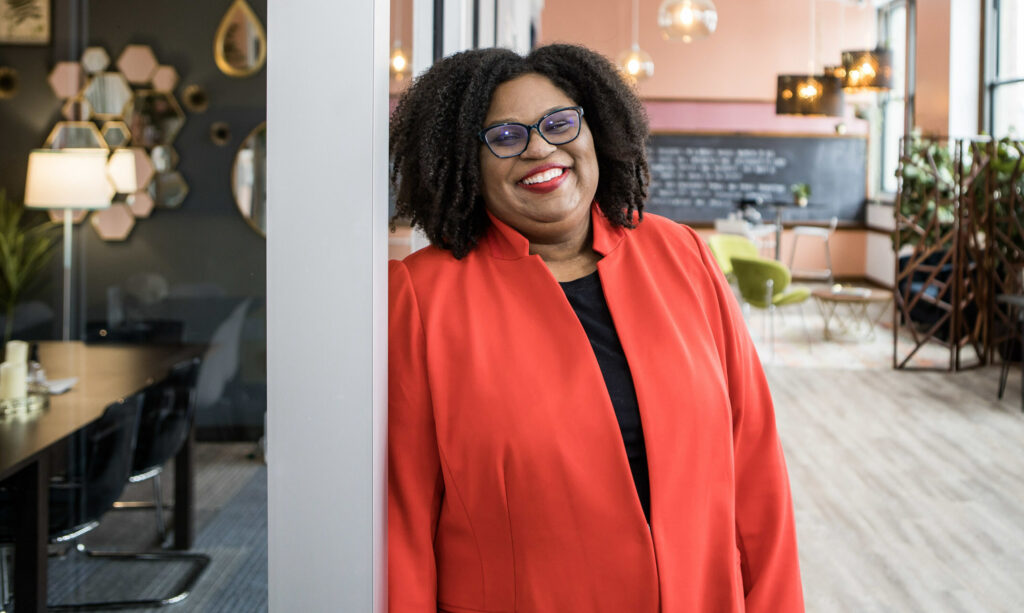
Headquartered in Kansas City, Free From Market is a patient-driven platform that supports lower-income consumers with chronic health conditions in accessing diet-specific foods.
A recipient of the 2022 Google for Startups Black Founders Fund, the company raised $2.1M in seed funding round in January. It will use these funds to improve its proprietary technology platform and expand its delivery model to provide people with access to affordable and nutritious foods, telenutrition, and necessary data to improve health outcomes.
In addition, the investment will help Free From Foods broaden its reach with managed care plans, providers and community-based organisations, and measure the effects of Food is Medicine interventions in treating health conditions. The startup offers bulk ordering for businesses and direct-to-doorstep access for people who can buy produce, meals, shelf-stable and branded groceries, as well as complementary telenutrition support.
“One in three Americans has a condition where food is part of the standard of care, yet many Americans do not have access to food and resources needed to treat it,” said Free From Foods founder and CEO Emily Brown. “Our curated food is free from ingredients an individual does not want and full of all the nutrients they need to manage a healthy life. This funding round is merely one milestone towards our goal to make a lasting impact to improve healthcare in this country and centre health equity.”
Don’t miss parts one, two, and three of our Food is Medicine series: Can Produce Prescription Programmes Improve America’s Health & Food Security?, How to Save American Lives and Billions of Dollars with Food Prescriptions and US Healthcare Company & Grocery Retailer to Study the Impact of Nutritious Food Availability on Health.


